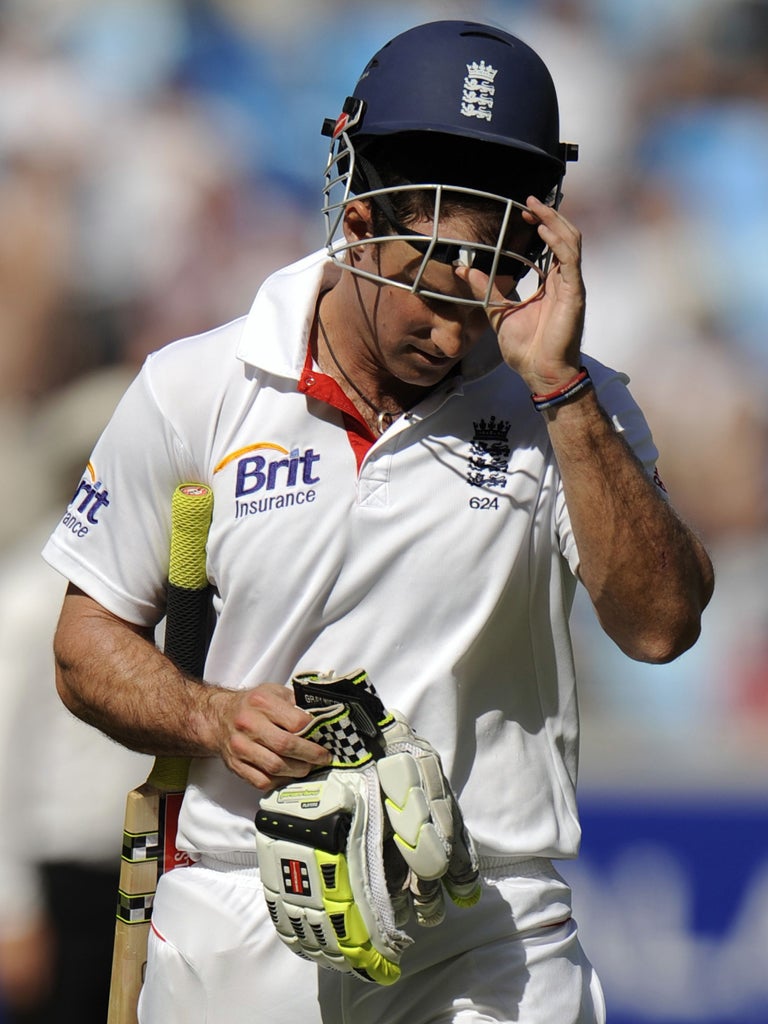
England's travails were already significant when Andrew Strauss, their captain, was out yesterday. It was the worst possible start to their second innings and put the Umpire Decision Review System on trial again.
Under the regulation, both sides are allowed two reviews per innings, the number remaining intact if they are proved right. The confusion starts when it seems they are neither right nor wrong. When Strauss was adjudged to have touched a ball down the leg side to the wicketkeeper in the fifth over of England's innings yesterday he quickly consulted his partner, Alastair Cook and made the sign calling for it to be re-examined. The replays came and were quite inconclusive.
Hotspot, the ultra-red technology which uses heat to sense if there has been a touch, indicated a spot on Strauss's thigh pad. He might have been spared but there was no overwhelming evidence that it was the ball that touched the pad, or if it had, had not also touched glove or bat. Given that that there was insufficient evidence to prove Strauss innocent, as it were, the umpire Billy Bowden's original decision of guilty had to stand. As it had a little earlier when Saeed Ajmal was given out caught at short leg and was equally convinced the ball had not brushed his glove. It probably did not but Bowden had adjudged there was a touch and in the absence of irrefutable visual testimony the decision stood. This caused the usual debate but Strauss remains a supporter of DRS.
His point always is that it leads to fewer wrong decisions. It does not, however, eradicate them. He was candid enough to concede his dismissal did not alter events. Actually, it might have.
Umpires such as Bowden might like to reconsider their approach to the so-called leg side strangle. They are hard to judge because the bat is so often tangled up with pad or leg and the ball has often passed the batsman's body before contact is made. Sound is not the same as sight in these cases.
The skill of the third umpire is also important, too, since he relays the information. The shortcoming of DRS is that if a batsman feels he is not out he feels doubly betrayed. It is not perfect but then neither are umpires or cricketers.
Skype's the limit: Savvy Agnew hits the Pad
Jonathan Agnew came to the rescue when Test Match Special's coverage was hit by technical difficulties. The TMS team, led by the tech-savvy Agnew, Skyped their live commentary via an iPad.
Subscribe to Independent Premium to bookmark this article
Want to bookmark your favourite articles and stories to read or reference later? Start your Independent Premium subscription today.

Join our commenting forum
Join thought-provoking conversations, follow other Independent readers and see their replies